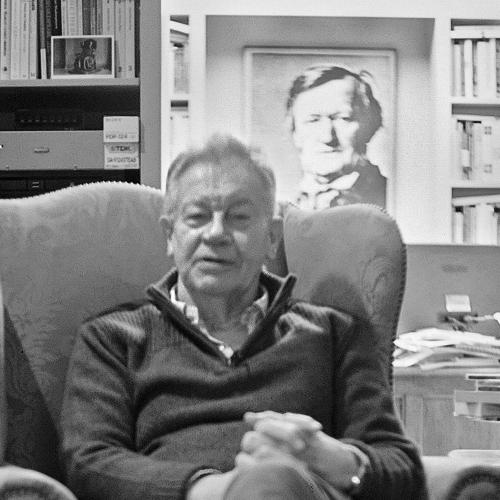COMPOSERS: Wagner
LABELS: DG
ALBUM TITLE: Wagner
WORKS: Tristan und Isolde
PERFORMER: Stephen Gould, Georg Zeppenfeld, Evelyn Herlitzius, Iain Paterson, Raimund Nolte, Christa Mayer; Bayreuth Festival Chorus & Orchestra/Christian Thielemann; dir. Katharina Wagner (Bayreuth, 2015)
CATALOGUE NO: DG 073 5251
This is a sensationally good musical realisation of Wagner’s most shattering work, and as a production it is only moderately irritating, so that’s a lot to be grateful for. The chief source of satisfaction is Christian Thielemann’s conducting, which manages to be both incessantly intense and has an unerring sense of direction – it is quite unlike how he claims to conduct the work in the interview on the second disc. The Bayreuth orchestra sounds more magnificent than I have ever heard it, but never overwhelms the singers. Evelyn Herlitzius may not have quite so beautiful a voice as Nina Stemme, the reigning Isolde, but it is still warm, large and expressive – and tireless. Stephen Gould’s Tristan has many solid merits, chief of which is that he too can sustain his enormous role; he is less relentlessly noisy than he was, but he still could dig deeper into the text, especially in Act III. The whole cast is superb, with an especially fine Marke from Georg Zeppenfeld, though he is made to do silly things, such as dragging Isolde away and back into the world, while the composer erroneously instructs that she collapses lifeless on Tristan’s body. Katarina Wagner evidently feels that there is quite a lot wrong with her great-grandfather’s work, which she corrects extensively, especially in Act I where a bemusing set of moveable staircases denotes the haphazardness of the central characters’ journey to one another. And instead of drinking the potion, Tristan pours it away – and so on. These emendations either contradict Wagner’s score or underline what is already obvious. Nonetheless, this is an indispensable account of this difficult and overwhelming work.
Michael Tanner
